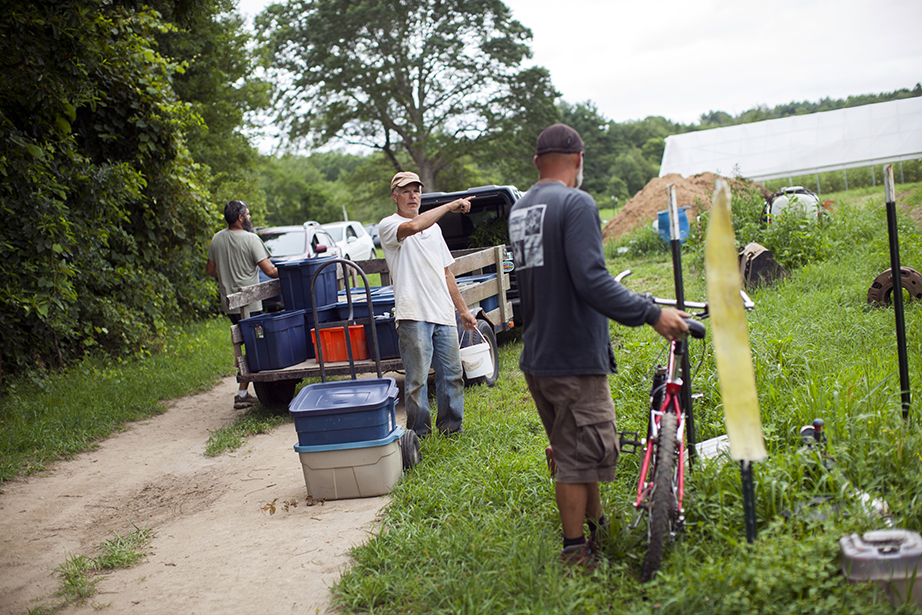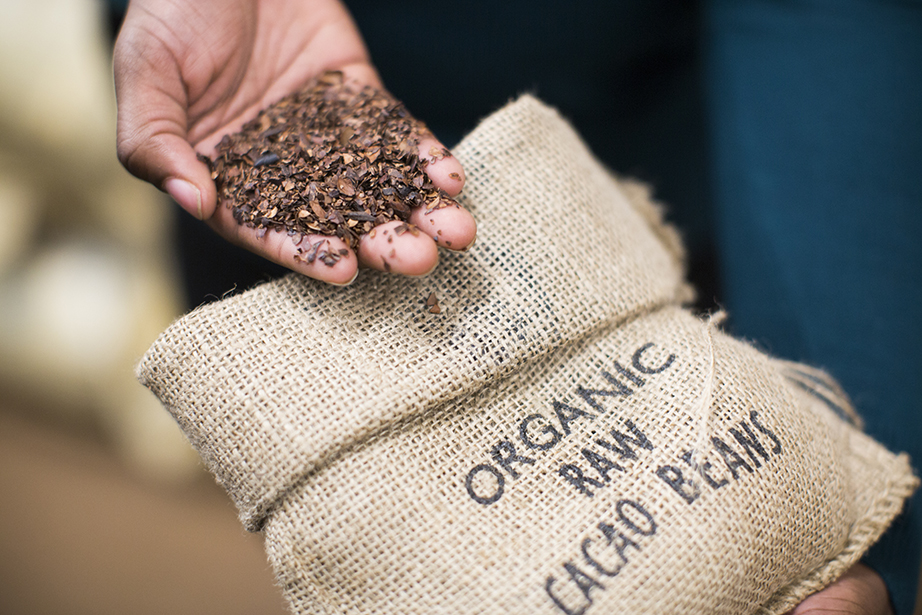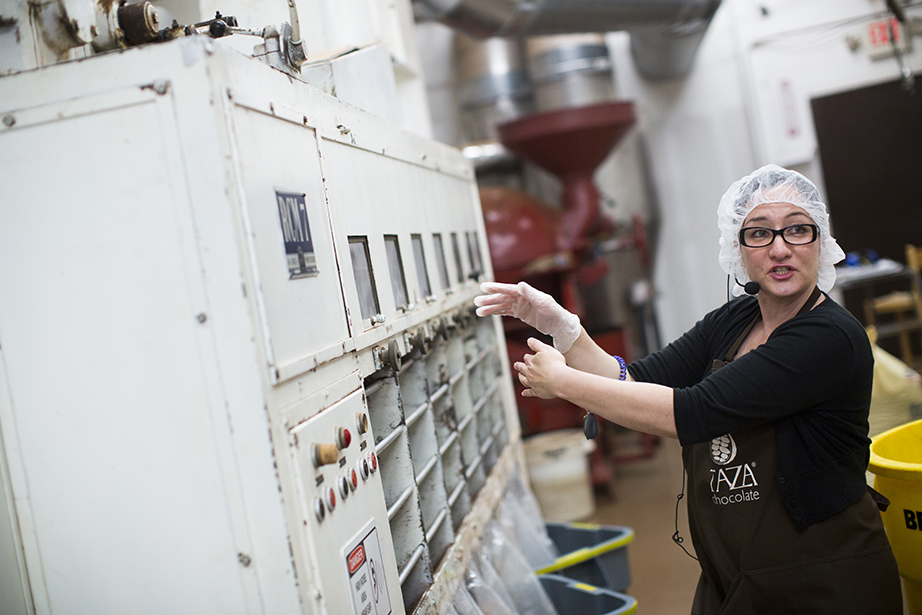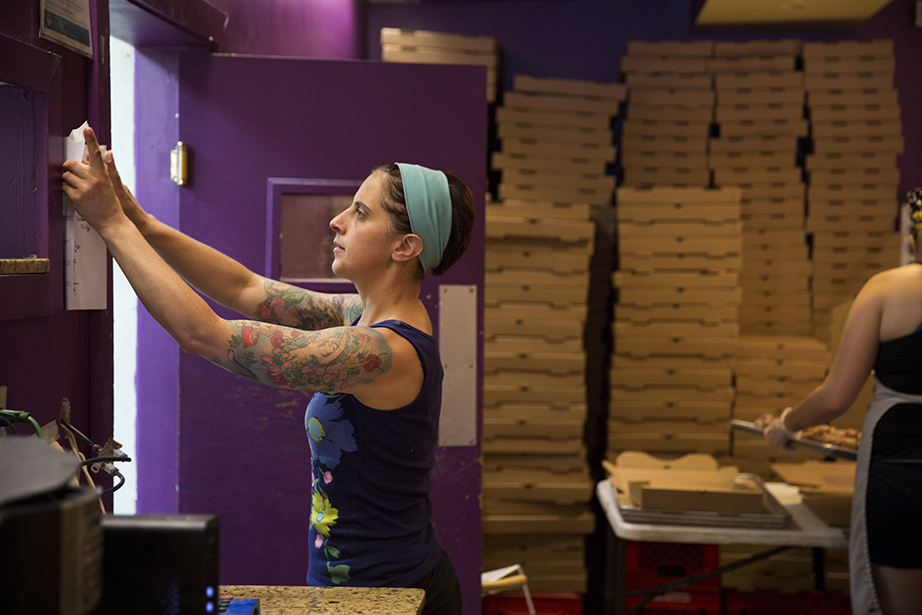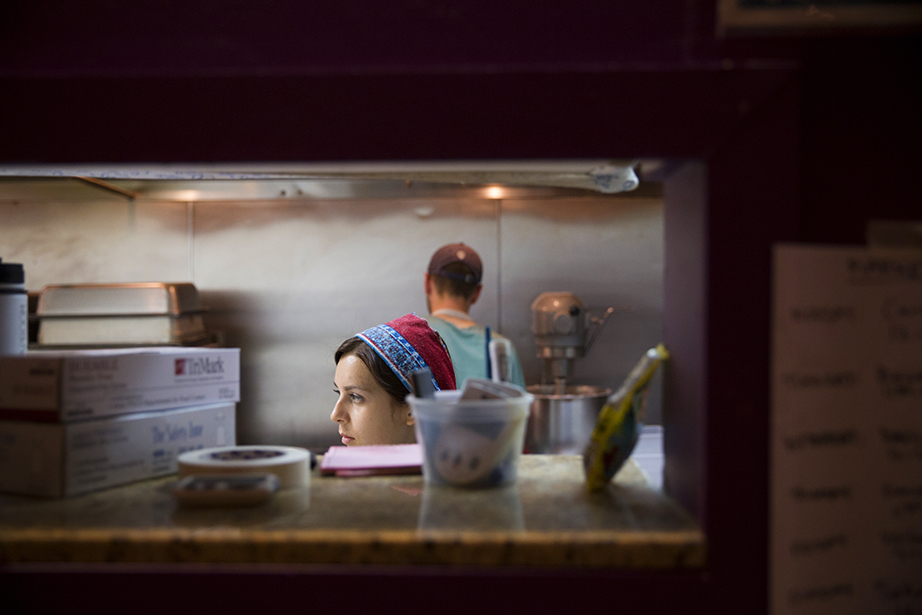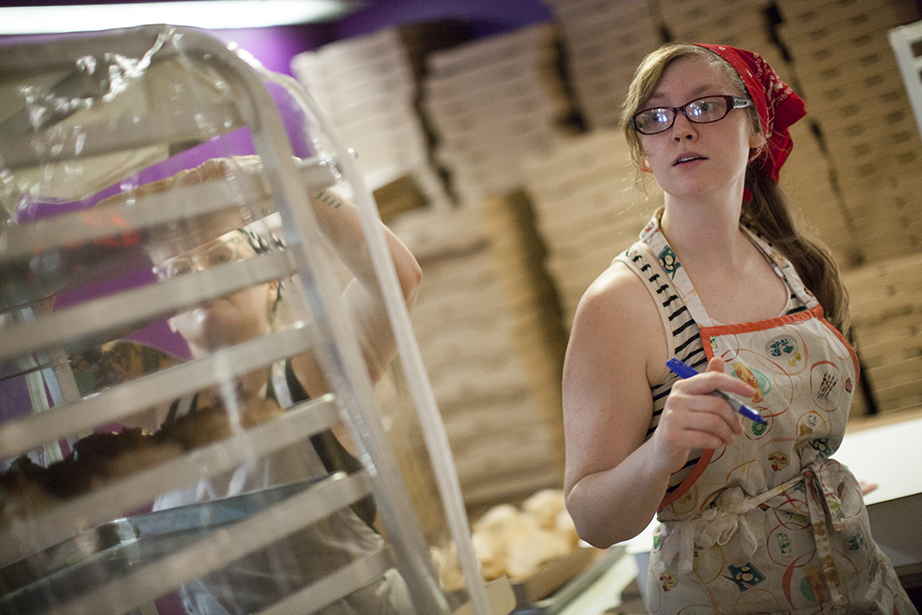
Plato’s Organic Harvest in Middleboro is one of the many Massachusetts businesses that brings its products to the Farmers’ Market at Harvard University. Dave Purpura is the owner of the farm. Stephanie Mitchell/Harvard Staff Photographer
Stephanie Mitchell/Harvard Staff Photographer
From farms to tables
A look at where the food sold at the Harvard Farmers’ Market originates
If there’s anything more delicious than a newly picked, vine-ripened tomato or fresh golden corn, it surely must be chocolate or a sticky, carb-laden confection. All are available at the Harvard Farmers’ Market, held weekly at the Science Center Plaza and in Allston. But their origins may surprise you.
Knowing where food comes from has never been more important in an age of global commerce and public debates over factory farming and genetically modified foods. This ethos is part of the farm-to-table movement, which emphasizes local foods such as those sold by the farms and vendors that serve the Harvard Farmers’ Market.
Taza Chocolate is one such vendor. Producing circles of stoneground chocolate in nearby Somerville, Taza is committed to sustainability, even as it sources cocoa beans from Bolivia, Belize, and the Dominican Republic. By dealing in direct trade with certified organic farms in these countries without a middleman, Taza can pay cocoa farmers well above market wage. The beans head straight to Somerville, where they’re turned into chocolate.
Right down the road at Union Square Donuts, production workers arrive at the break of dawn, ready to hand-roll, cut, fry, and glaze fresh doughnuts before most people have even hit the snooze button. They work mostly in silence, save for the noise from a radio and the phone, which rarely stops ringing. A good doughnut is hard to find.
Farther off, in Middleboro, Mass., roosters signal another day on the farm for Dave Purpura, who rents his acreage for Plato’s Harvest Organic Farm. The former software engineer has been farming for nearly a decade. He and a few farmhands transport the day’s harvest to Purpura’s home, where it’s rinsed and boxed before it’s sent to farmers markets.
The tableau of animals, cornstalks, and countrymen makes for a cinematic, even romantic, view. “Everyone thinks that until they get out here for a few hours, and it’s 90 degrees, and the romance goes out the window,” said Purpura. It’s hard work that makes a farm work.
Additional reporting by Crystal Chandler.


